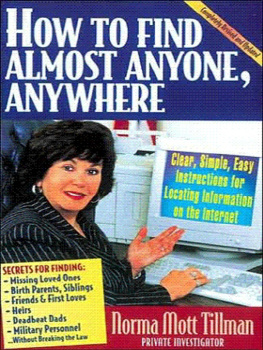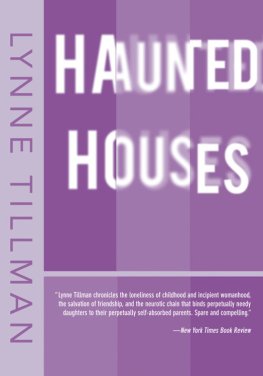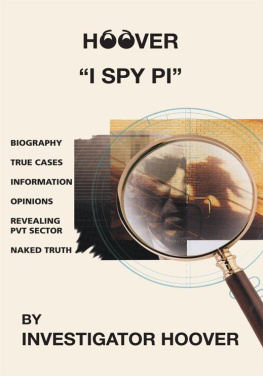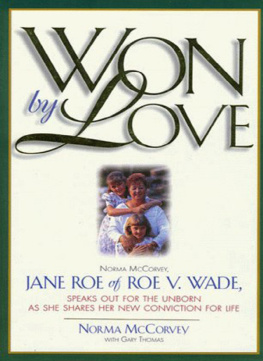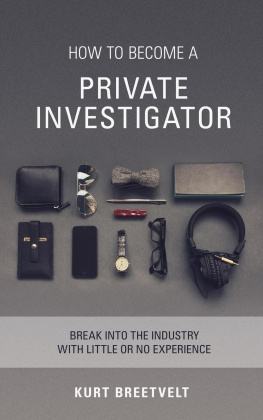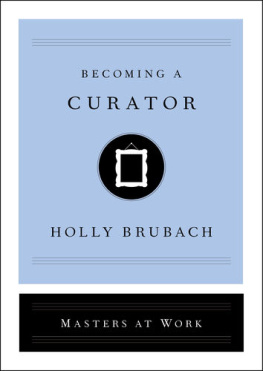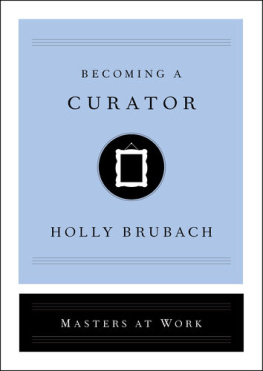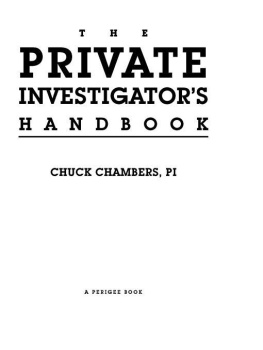
How to Find
Almost Anyone,
Anywhere
Revised Edition

How to Find
Almost Anyone,
Anywhere
Revised Edition

Norma Mott Tillman
Private Investigator
Rutledge Hill Press
Nashville, Tennessee
Copyright 1994, 1998 by Norma Mott Tillman.
All rights reserved. Written permission must be secured from the publisher to reproduce any part of this book except for brief quotations in critical reviews and articles.
Published in Nashville, Tennessee, by Rutledge Hill Press, Inc., 211 Seventh Avenue North, Nashville, Tennessee 37219. Distributed in Canada by H. B. Fenn & Company, Ltd., 34 Nixon Road, Bolton, Ontario L7E 1W2.
Typography by D&T/Bailey, Nashville, Tennessee.
Design by Bruce Gore, Gore Studios, Nashville, Tennessee.
Library of Congress Cataloging-in-Publication Data
Tillman, Norma Mott, 1938
How to find almost anyone, anywhere / Norma Mott Tillman.
p. cm.
Includes bibliographical references and index.
ISBN 1-55853-294-3 (hardcover)
1. Missing personsUnited StatesInvestigation. 2. Birthparents United StatesIdentification. I. Title.
HV6762.U5T55 1998
363.2'336dc21
98-30964
CIP
Printed in the United States of America
1 2 3 4 5 6 7 8 9 02 01 00 99 98
How to Find
Almost Anyone,
Anywhere
Revised Edition

Acknowledgements
This book is dedicated to my sister Barbara Meroney and my friends Darlyn Farris and Shirley Crick. I have watched as all three of these people have followed in my footsteps and Im very proud of what they have accomplished. Without their help I dont know how I would have been able to make this book possible. I am truly grateful for all their support and encouragement. Im proud to pass the torch of being one of the leading missing persons experts on to my sister. Barbara has truly paid her dues and is one of the best.
I would also like to thank the individuals who helped with the updating of specific chapter: Lynn Ingram for the Adoption chapters; Neff Hudson for the Military chapter; Sheri Herold for the Deadbeat Dads chapter; and Barbara Renick for the Genealogy chapter. I extend my thanks to R. Scott Grasser for his valuable input for the Internet chapter and use of resources from his book, FINDsomeone.com. And a special thanks to Jack Richard for his permission to use selections from his article, Ring That Bell....
Contents
13. The Buck Stops Here:
Deadbeat Dads and Other People Who Owe Money
DEAR NORMA
My parents divorced when I was only five years old. My father was career military. I do not know why they divorced, but my mother always told my brother and me that if our father really cared about us he would contact us, but he never did. I have always wanted to find him, but my mother would not help. I am now thirty-two years old, married, and the mother of three children. I want my children to meet and know their grandfather. It was very difficult growing up without my father. We really loved him and needed him.
I have tried writing the military records center and have contacted the military locating service, but no one will give me any information. I know my father paid child support and that it was automatically deducted from his military paycheck, but the government will not give me anything. I asked them to forward a letter to him, but the letter was returned. I dont know where else to turn.
SALLY
I am often asked, What made you become a private investigator? I did not plan it, but it seemed like the most natural thing in the world for me to do because I am very independent, persistent, determined, intuitive, inquisitive, decisive, and innovativequalities that are helpful to a private investigator.
What keeps me going are letters like the one on the previous page from people searching for their father, their child, a brother or sister, or a long-lost friend. Sally, who wrote this letter to me, had her fathers full name, his date of birth, and his military I.D. number. With this much information it should be easy to find her father, but she did not know how. And the government was not going to help her. With the information I give in this book, however, finding her father would not be difficult.
Nothing has ever been dull, boring, or routine for me. Early on I was curious and adventurous, always exploring the world around me. Living on the edge has been my way of life since childhood, and mysteries have always fascinated me. As you might suspect, other children my age did not share my interests. In addition, I have always been independent, which allows me to do what I want to do, when I want to do it. Of course, because investigators spend so much time alone, on the road tracking down clues, this sense of independence has served me well.
I didnt appreciate the value of having two talented and creative parents until I was grown and had a family of my own. Nor did I realize how much they impacted and influenced my life as they helped to set me on a course. My father was a homicide detective who worked with the Nashville Police Department since before I was born. When he came home for dinner, I would sit in his car and listen to the police dispatcher. His homicide reference books fascinated me, and by the age of ten I was familiar with such terms as point of entry, decapitation, angle of attack, rape, homicide, death, and evidence. He was intuitive and had an analytical mind.
My mother was a gifted person who did not have any limits to her numerous talents. Every time I see a beautiful garden I am reminded of the beautiful flowers in our back yard that were my mothers pride and joysecond only to my two younger sisters and myself. My mother had eighty-five varieties of iris and kept an itemized record of the names of the flowers and the dates they bloomed.
I inherited many qualities from my parents (who died before seeing me become an investigator) that have contributed to my success as an investigator, and I attribute many of my skillsthe ability to improvise, to find my way around a new place, and to survive in the outdoorsto the years I spent in Girl Scouts and in summer camps.
After graduating from high school, I skipped college and went to Washington to work for the federal government. When my mother died, I transferred back to Nashville and got a job with the Internal Revenue Service. A few years later I began working with the police department and studied criminal law. After eleven years of working in law enforcement, during which time I learned about shooting a gun, performing emergency medical training, criminal law, accident investigation, hostage negotiation, officer survival skills, and self-defense, I experienced burn out.
For the next two years I worked as an insurance fraud investigator and learned about civil law and civil investigations. Even though I had mastered the police departments data bases, I was not aware of the many public records that were available and the miles and miles of paper trails on almost all private citizens. During this time, several attorneys began asking me to find a missing witness, an heir to an estate, or someone else. I obtained a private investigators license and learned what I needed to know to find information or people by trial and error. Fortunately, I had numerous contacts and knew my way around Nashville and how to work with the police department. Working as a private investigator began as only a sideline. Then as word got around, and as my reputation grew, I found myself doing full-time what I enjoyed mostfinding information and locating missing people.
Next page
